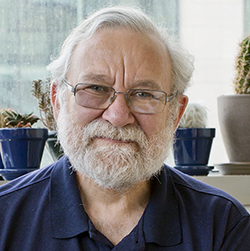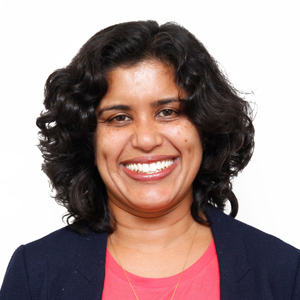Peter Walter: An explorer of cells
The unfolded protein response is one of the cell’s quality-control systems. The response helps cells decide when to fix proteins and when to commit suicide. The laboratory of Peter Walter at the University of California, San Francisco, has been at the forefront of identifying the machinery and mechanisms that oversee protein synthesis, folding and targeting as well as the signaling relays that allow organelles to communicate with each other. As the unfolded protein response makes life-and-death decisions for the cell, it has been implicated in numerous different diseases, including some inheritable forms of protein-folding diseases, neurodegeneration, diabetes and cancer.
Walter got into studying protein targeting as a graduate student. He was working in the laboratory of Günter Blobel at The Rockefeller University when he discovered the signal recognition particle that guides proteins to where they need to be. Later, in his own lab at UCSF, he initiated work on the unfolded protein response, initially using genetic approaches in yeast.
 Walter
Walter
In a recent New York Times profile, Walter described how his time in the Blobel laboratory began serendipitously. He was an exchange student at Vanderbilt University, visiting the U.S. from Germany, and decided to apply for a Ph.D. program at Rockefeller. He was put on a waiting list. At the last minute, a student decided to decline the invitation to join the program, giving Walter a spot. Ever since that time, Walter has been focused on learning how cells check that all the proteins and organelles are functioning properly.
What are some of the current projects going on in your lab? What has you excited?
We have been studying the unfolded protein response for many years. I trained initially as a chemist, so we have a very strong mechanistic angle to understanding how the machinery of the cell works to identify the folding status, communicate it into constructive corrective measures and, if that doesn’t work, make a decision to kill the cell. We’re exploring whether we can modulate the basic cellular mechanisms to find some therapeutic window in which we may be able to do some good in disease. In this sense, we’re trying to build bridges between the basic science discoveries and clinical applications.
What are some the big challenges that you see in research?
To convince the public and the funding agencies that there is an incredible value in basic, curiosity-driven research where the applications aren’t apparent at the onset. It has been a major struggle with the (National Institutes of Health) – having to justify translational implications at the onset rather than letting scientists be explorers and recognizing the incredible value of accumulating knowledge for knowledge’s sake.
I know you also as a co-author of “Molecular Biology of the Cell.” How has the textbook influenced you?
As authors of this book, we read every chapter. We are all intimately involved with every part of it. (The book) has made me a much better scientist by expanding the scope of my knowledge base and staying at the forefront of what is exciting in numerous different fields.
What are the other fields outside of your expertise that you find exciting?
The technology that we have at our fingertips is just tremendous these days. For example, there’s the CRISPR technology. We can now do incredibly sophisticated genetic experiments and get deep insights into even the most complicated regulatory events. It’s a real revolution in having the tools to engineer mutations in mammalian cells. Basically, mammalian cells are now becoming as accessible as yeast used to be 30 years ago.
In the New York Times profile, it mentioned your parents owned a chemist’s shop in Berlin, Germany. What are some of your favorite memories of the shop?
It gave me the opportunity to appreciate the wonders of chemistry. I started as a young boy playing around with chemicals, very much in the pyrotechnical angle! It was incredibly inspiring to me – the conversion of matter and the nice sparks and explosions one can so easily create. (My experiments) became a little more sophisticated as I grew older and started studying chemistry. I found chemistry, personally, a little bit too constricting, and the questions in biology much bigger. I evolved into what I am today, an explorer of how cells are built and function.
Who has been important in shaping you as a scientist?
I had a fantastic chemistry teacher in high school. He was really inspiring and gave us a lot of leeway of playing in the back rooms. In fact, I had fantastic mentors all the way through my career. When I first came to this country, I spent a year in Nashville. My host was an organic chemistry professor, Tom Harris, and it was a wonderful time. Again, he gave us freedom to explore things of our own. And at Rockefeller, my Ph.D. adviser, Günter Blobel, was an incredible mentor and shaped my career in so many ways.
You straddle the worlds of chemistry and biology. Is there something to be said for being trained in one field and working in another?
I always felt that thinking chemically has been an advantage in my career. Proteins are not magic beings. They are complicated chemicals, and they obey the laws of thermodynamics. It puts a more reductionist angle on the questions we ask. I never feel that there are limits to our understanding. And I think that comes with our appreciation for chemistry.
What characteristics are in a good scientist?
Boundless curiosity. Not being discouraged by the many failures that come with scientific pursuit and all of the bureaucracy that nowadays comes with our jobs. A lot of tenacity for sticking with it.
For me, science really is an adventure. It’s not a 9-to-5 job. And it never will be. I tell my students that if they come to the lab and don’t have fun, they should reconsider their careers. They might as well go out and make money.
What are your interests outside of the lab?
I do a lot of art: sculpture, woodworking and welding. These days I don’t do experiments with my own hands, and just sitting all day in front of a computer is not as rewarding as it is to do things manually. I’ll get that kind of satisfaction from my basement projects. Currently, I’m building a fountain for the garden, which I’m welding from copper. It’s been going on for a long time.
Are there any words of advice you wish you were given when you were younger?
I’ve always been surrounded by spectacular mentors and worked in great communities and been given many words of advice. And many things you can only learn by first failing. Overall, I’ve no regrets. Many things happened that were unexpected, but I think if I had been more aware of how challenging it can be to carry on in this job, I might have just been discouraged. So, in a way, I got to live in my dreams.
Watch his plenary lecture
Enjoy reading ASBMB Today?
Become a member to receive the print edition four times a year and the digital edition monthly.
Learn moreGet the latest from ASBMB Today
Enter your email address, and we’ll send you a weekly email with recent articles, interviews and more.
Latest in People
People highlights or most popular articles

The timekeepers of proteostasis
Learn about the cover of the winter 2026 ASBMB Today issue, illustrated by ASBMB member Megan Mitchem.

Defining JNKs: Targets for drug discovery
Roger Davis will receive the Bert and Natalie Vallee Award in Biomedical Science at the ASBMB Annual Meeting, March 7–10, just outside of Washington, D.C.

Building better tools to decipher the lipidome
Chemical engineer–turned–biophysicist Matthew Mitsche uses curiosity, coding and creativity to tackle lipid biology, uncovering PNPLA3’s role in fatty liver disease and advancing mass spectrometry tools for studying complex lipid systems.

Summer research spotlight
The 2025 Undergraduate Research Award recipients share results and insights from their lab experiences.

Pappu wins Provost Research Excellence Award
He was recognized by Washington University for his exemplary research on intrinsically disordered proteins.

In memoriam: Rodney E. Harrington
He helped clarify how chromatin’s physical properties and DNA structure shift during interactions with proteins that control gene expression and was an ASBMB member for 43 years.

